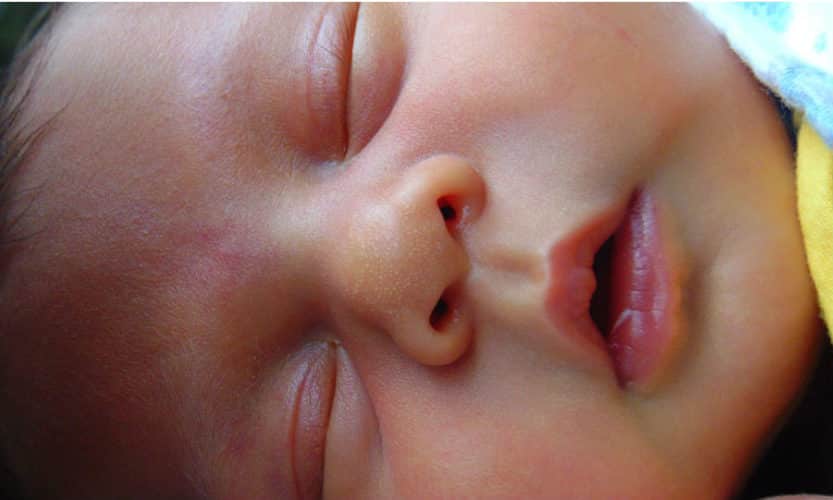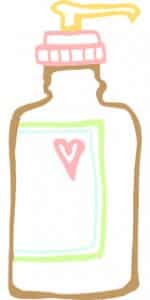To read the previous part of the article, go to How to Prevent Eczema.
Eczema is a chronic condition that shifts between outbreaks and periods of calm. Treating eczema takes time.
There are no treatments that will permanently eliminate eczema outbreaks in babies. But there are things you can do to improve the situation and control the unpleasant symptoms. Effective treatment can reduce most outbreaks and reduce their extent and intensity, the severity of the outbreak.
Here are both natural and pharmacological (prescription) ways to treat eczema.
Natural treatments:
Given that dry skin often causes eczema outbreaks, during my last training session the dermatologist recommended that we strongly suggest to parents that they hydrate their baby’s skin. HYDRATE, HYDRATE, AND HYDRATE SOME MORE! 😊
How can you hydrate your baby’s skin? With what?
Excellent question! You need to use an ultra-hydrating cream on your baby’s whole body. Apply daily, and even more so when the air is dry. This can reduce skin outbreaks by 30-50% and limit the extent of the outbreak as well.
There is no cream better than another. You have to test several to see how your baby reacts to them. The cream needs to be thick, creamy, and use the one that seems to help your baby best.
Some doctors will suggest baths with oils to hydrate your baby’s skin as a preventative measure during some periods of the year, but these are personal choices.
Pharmacological treatments:
Before treating a baby, the doctor will check to see if they need light, medium or heavy treatment and indicate how to use the medication for its fullest effect.
There are four types of medical treatments for eczema that can be used on their own or in combination: corticosteroids, immunomodulators, antihistamines and antibiotics.
Corticosteroids
First, the doctor can prescribe corticosteroid-based medications which can be topically applied to your baby. Due to their effectiveness for eczema and other dermatological illnesses, topical corticosteroids are the first line of treatment when natural methods don’t work and if there are no signs of infection. Don’t be scared of salves that work!
Topical corticosteroids act on the skin’s cell development, on the local inflammation and immune system reactions. They will significantly help control the rough red patches and soothe itching, burning and discomfort. They can also restore the clinical situation.
For young babies, corticosteroids can be applied as a cream, salve, ointment or lotion. The doctor will make their prescription based on their age, reaction intensity and the zone affected by the outbreak.
Dermatologists often have special recipes that pharmacists will prepare, since the medication can come in powder form which is combined with a thick cream to be applied to the baby’s skin.
Immunomodulators
An immunomodulator is a medication that reduces the body’s immune system reactions (modulation) by preventing the body’s immune system response.
With eczema, the immunomodulation effect and reduce the body’s reaction to an irritating substance or allergen which usually leads to a skin reaction. The medication will reduce the outbreak’s symptoms.
This medication is also a topical prescription for young children, either as a cream or ointment.
Antihistamines
Antihistamines can act on the body’s reaction to an allergen when itching is present, which can discomfort babies and children.
Antibiotics
Antibiotics will be necessary when there’s an infection at the site of the cutaneous outbreak.
Since we know that children who have eczema have weaker skin defences, other skin conditions may occur at the same time, such as impetigo, which is a bacterial infection.
When should you consult a doctor?
- When the first signs of what seems to be eczema are present
- If the baby doesn’t respond to prescribed or suggested treatments
- If you note fever
- If the outbreak becomes serious with abnormal pustules or crust, with or without an odour
- If the baby has problems sleeping due to itching
- If the baby has growth problems, low weight, you need to check if they are possibly allergic to their milk
I think that this article will guide you through infant eczema. I strongly suggest you always keep an eye on your baby’s condition, especially if there is a family history of the condition. It will also help you try to prevent outbreaks using the methods listed above. An ounce of prevention is always worth a pound of cure!
Talk soon,
Marie
The Baby Expert



